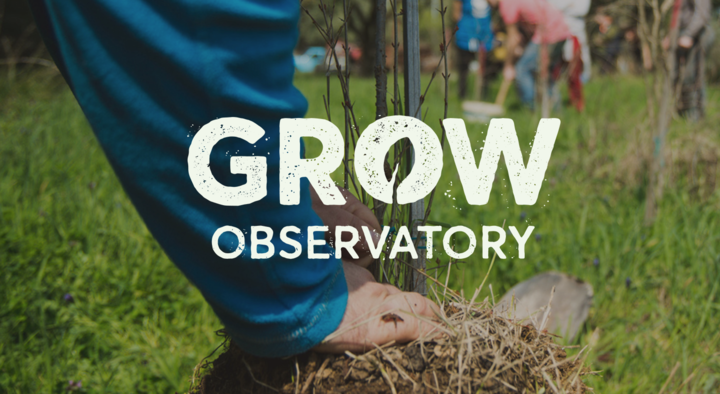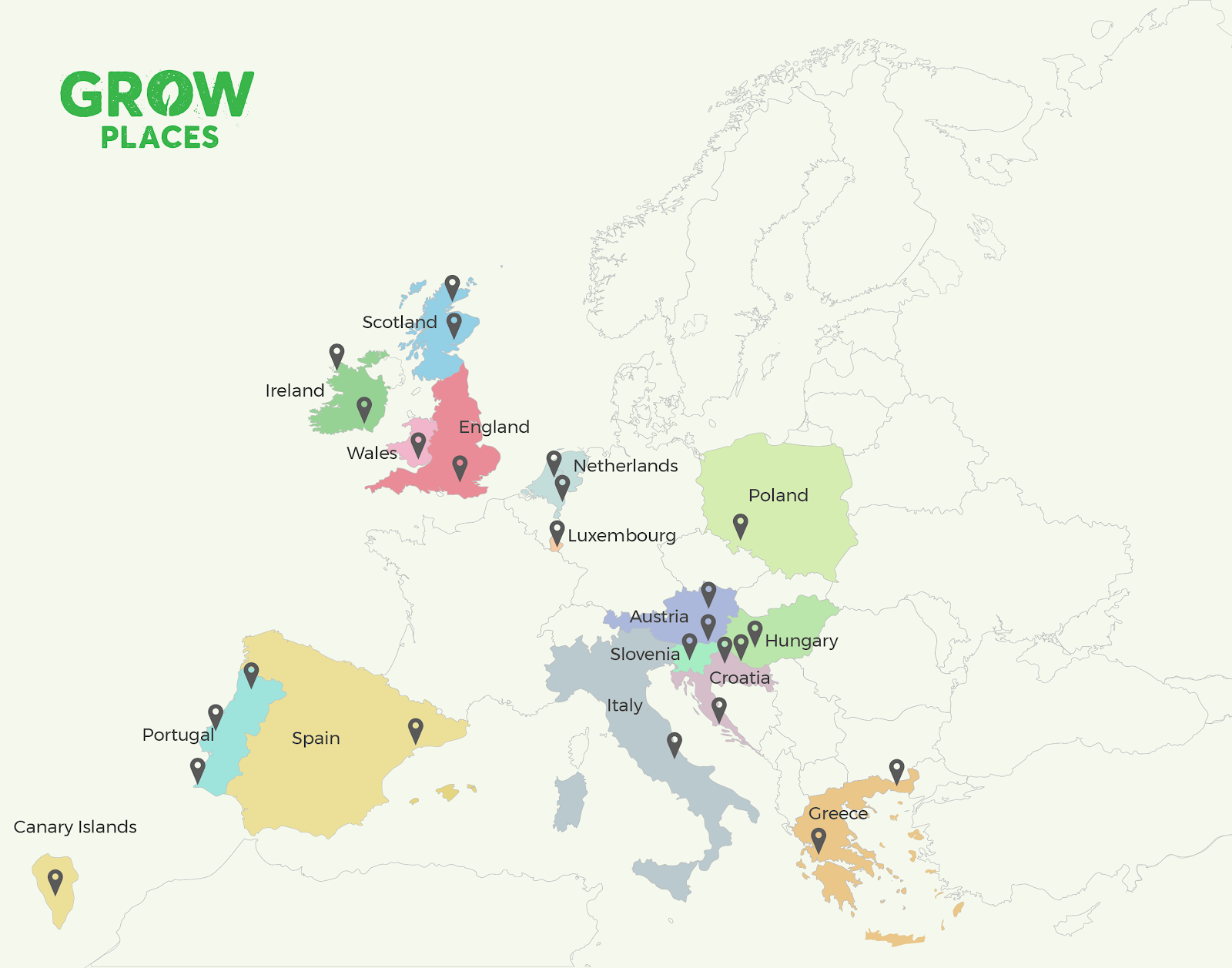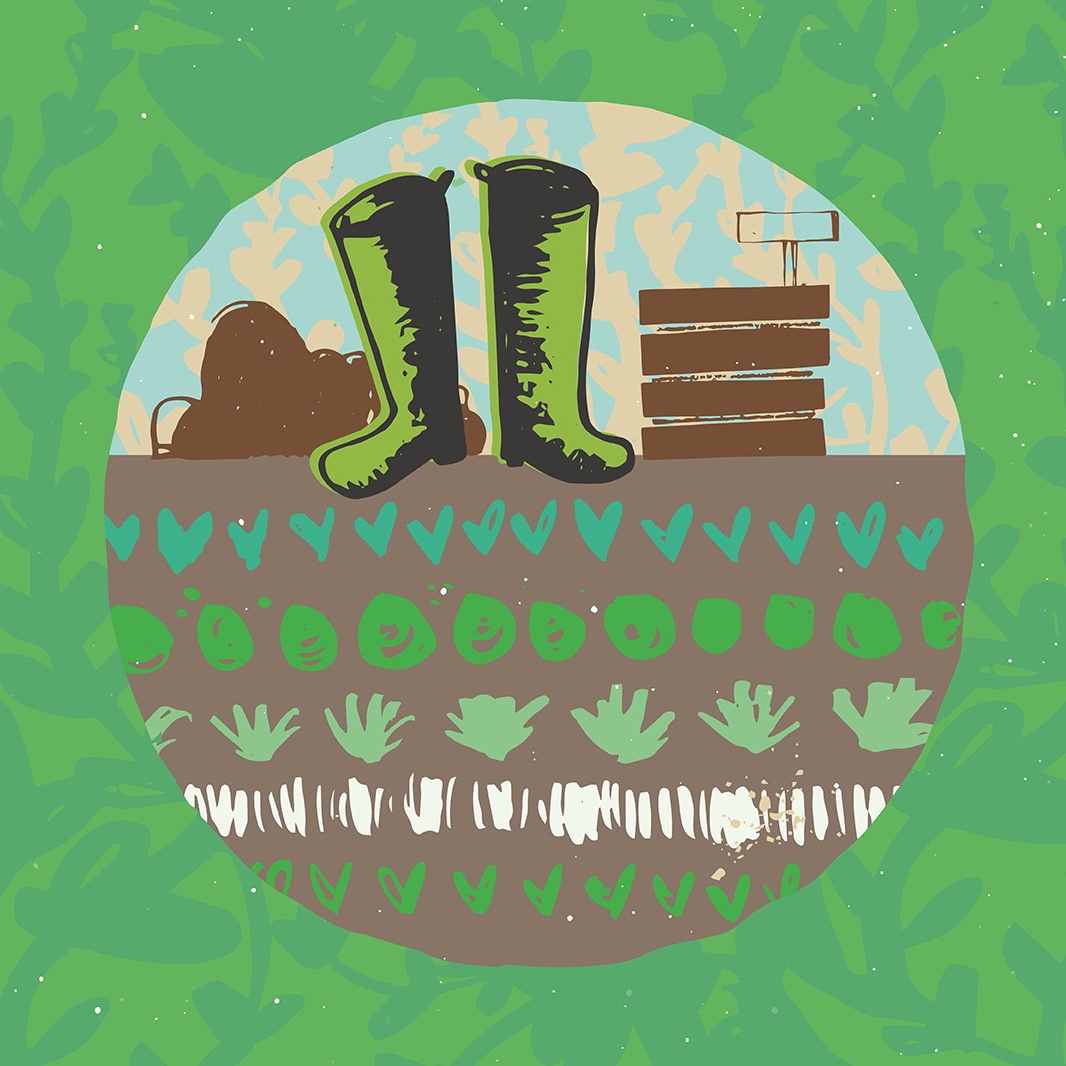
Building Better Soil Through Citizen Science
We were a partner in the GROW Observatory, a European-wide project engaging thousands of growers as citizen scientists. The GROW Observatory, an EU Horizon 2020 project, started in 2016 and ran until October 2019. Led by a team based at the University of Dundee, and working with 19 partner organisations from 8 countries across Europe, the project was an innovative approach to creating a community of citizen growers, gardeners, small scale farmers, scientists and policymakers, all working together to learn from each other, provide growing and policy advice and contribute data on local soil conditions, to help validate climate change models generated by satellite.
The project vision was to support and build smart and sustainable custodianship of the land and soil across Europe and to provide an answer to the long-standing challenge for space science, which is the need to validate climate change models with soil moisture detection on the ground. These data and this knowledge will in turn also be used to inform policy decisions on land use, soil management and climate change.
In 2017, two key "Missions" began; Changing Climate and Living Soils.
Changing Climate Mission
This was led by CulturePolis in Greece. It was based in specific locations around Europe and involves the distribution of low-cost soil sensors which collect data on soil moisture, temperature and light levels every few minutes. You can find out more about the communities that took part in the Changing Climate Mission on our GROW Places page.
The soil moisture data are being used by satellite scientists at the Technische Universität Wien (TU Wien) in Vienna, Austria to validate measurements from the Sentinel 1 and other satellite data. Spatial soil scientists at University of Miskolc in Hungary are using the data to develop interpolated maps of soil moisture that can be used as tools to help farmers understand the highs and lows of moisture across their sites. These maps are at the heart of interactive visualisations of soil moisture.
In 2019 the mission expanded to include England and Wales. We are really excited about how this can also help our members to collect and share data to start to understand differences and similarities between the sites where permaculture is happening.

Living Soils Mission

This was led by the Permaculture Association (Britain). It was open to everyone anywhere in the world and aimed to develop and support an active network of small-scale growers and gardeners who grow food by using, and collaboratively investigating, practices that regenerate soils and create resilient ecosystems. It included free online courses, learning content, and citizen research experiments. There is more information on what we did below.
What did the Permaculture Association contribute to the GROW Observatory?
Although we led the Living Soils mission, we were involved across the project, we:
- Led an innovative hypothesis-driven citizen research to test how regenerative practices work in the real world.
- Led reviews of the existing evidence on regenerative growing practices to make good-quality information more widely available to growers.
- Designed and developed learning content for two free online courses, and contributed content to a third.
- Contributed content to the GROW Observatory app to help inform growers on good ways to improve soils and enhance ecosystems.
- Helped to spread the word about permaculture, regenerative growing and the need to look after our soils, by engaging our networks in all aspects of the project and creating content to share more widely.
- Supported the GROW Science team, led by the International Institute for Applied Systems Analysis (IIASA), to develop and share robust methods that bridge the gap between rigorous science and enjoyable citizen science in both Missions.
- Developed content to help people understand and use their own data.
Citizen Research Experiments
Working with project partners at the James Hutton Insitute (JHI) and IIASA, we developed two hypothesis-led citizen research experiments. In summer 2017 we designed one to investigate the effects of mulching on four key soil properties. In 2018 we designed and ran an experiment to compare the productivity of three crops grown in polyculture with those grown in monoculture; the Great GROW Experiment. You can see more about this, including how we designed the method, what was involved and what we found out here.
Free online courses open to all
With JHI, IIASA and the University of Dundee, we designed and developed three free online courses hosted on FutureLearn. These included information on regenerative growing practices and training in how to experiment in your growing site.
- Citizen Science: From Soil to Sky (February 2017 2018 and 2019) included information about the importance of soils and current threats, ways to measure and assess your soil, and regenerative growing practices that can help improve it.
- Citizen Science: Living Soils, Growing Food (April 2018, May 2019) went further into regenerative practices and also took growers on a journey to learn how to experiment in their own growing space. Participants were invited to join the Great GROW Experiment in summer 2018.
- Citizen Science: From Data to Action (November 2018) we looked at the first results from the experiment and helped participants learn how to graph and understand their own data to conclude the research journey. This course also summarised content from the Changing Climate mission and followed on from Citizen Science: Sensing the World (March 2018, 2019).
GROW Observatory resources
The Permaculture Association contributed to the following resources which can be downloaded from this page.
GROW Glossary
A glossary of words commonly used in GROW Observatory resources.
Available in: English, Deutsch, español, ελληνικά, magyar nyelv and hrvatski
Making Sense of Sensors
This document introduces the use of soil sensors and interpreting soil moisture, light and temperature data from them.
Available in: English, Deutsch, español, ελληνικά, magyar nyelv and hrvatski
Regenerative growing infosheets
These information sheets on regenerative practices are based on review of the current knowledge by GROW scientists. The more detailed reviews of these practices and others can be found on the Permaculture Knowledge Base, alongside information on other growing practices to help regenerate soils and restore ecosystems.
Research in Your Growing Space Handbook
An introduction to planning scientific investigations in your growing place.
Available in: English
Make an Earthworm Hotel
This experiment shows the effect earthworms have on soil structure; it takes up to an hour to set up and two weeks to complete.
Available in: English, Deutsch, español, ελληνικά, magyar nyelv and hrvatski
Test Acidity and Alkalinity of Soil
These experiments take an hour or less and explain how to test the acidity and alkalinity of your soil using litmus paper, and with your own homemade indicator. There is also an activity on making colour changing lemonade.
Available in: English, Deutsch, español, ελληνικά, magyar nyelv and hrvatski
Polyculture Experiment
This longer experiment takes a whole growing season and tests how the yield of three crops grown in a polyculture compare to the same three crops grown as monocultures.
Available in: English
We are very happy to be supported by EU funding for this work.
The GROW project is funded from the European Union’s Horizon 2020 research and innovation programme, under grant agreement No 690199.
